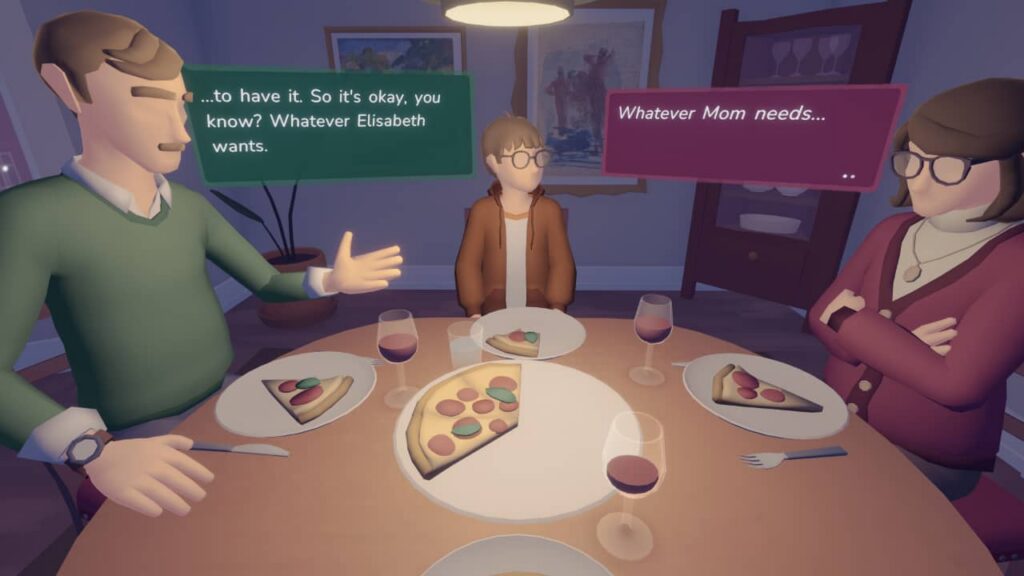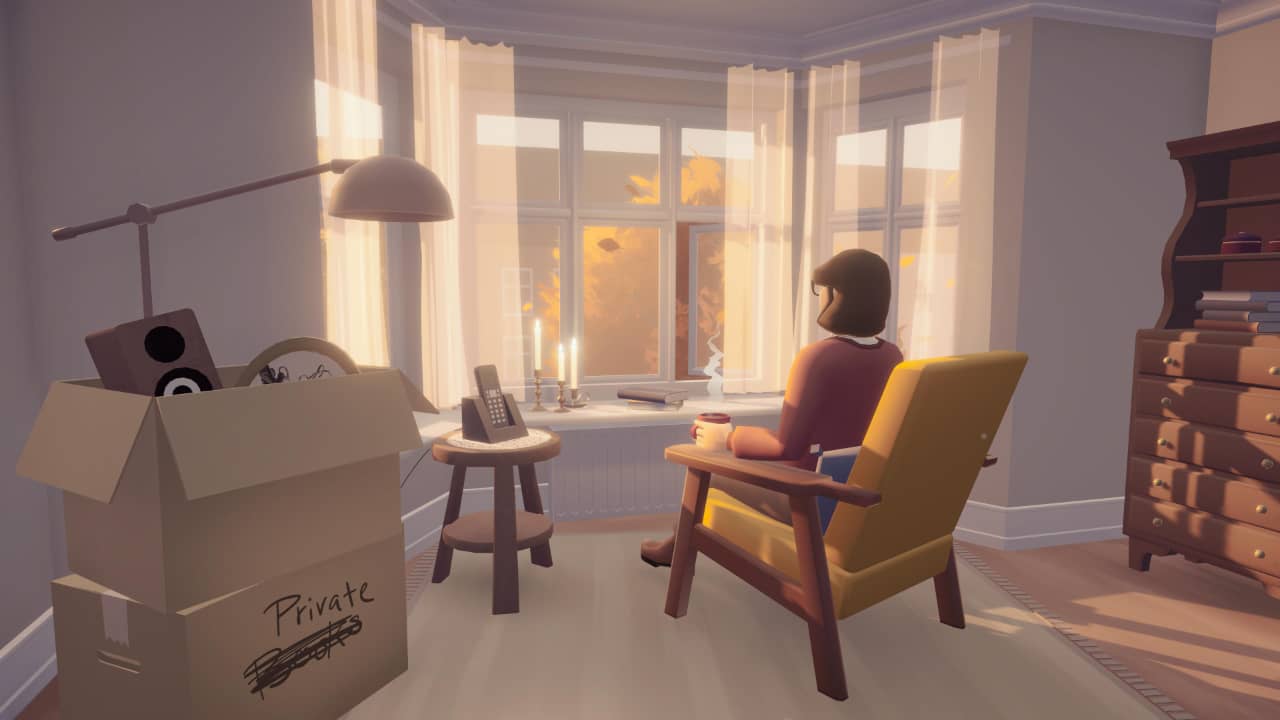As Long As You’re Here elevates gaming as a form of art. Yes, we’ve been here before, and there’s a fair share of conceptual pieces that raise the bar, not just for storytelling or educational values, but a fusion of the two and tackling emotional intelligence and an exploration of debilitating conditions such as Alzheimer’s Disease.
If you’re already starting to wane and expecting a cheeky little bit of wordplay, go play with some rocks as Autoscopia Interactive’s game isn’t the type to make light of, nor is it intended to bring you down and affect your well-being, though there is a disclaimer that suggests that if you’re aren’t ready to engage with the content, to skip if for now. That would kind of suck if you bought the game, though, you do read the blurb, right?
Anyway, we can all get first-hand experience of Alzheimer’s through the 55 million lives affected by it – and that’s for those who directly suffer and not their loved ones. Sure, this sounds incredibly bleak, but As Long As You’re Here is surprisingly moving, and depending on your own life experiences and whether that affects your immediate family bubble or your own views of mortality, it could positively shape your understanding of it.

We begin our tale with a recollection of memories that start to drift through the omission of the words displayed on screen. You are Annie. From a first-person perspective, you will be experiencing her life in the latter stages of Alzheimer’s. Her daughter, Elisabeth, had managed to secure an apartment in the same block as hers to keep tabs on her, while Annie’s brother applies the more ‘distant’ approach and is currently travelling for the next couple of months.
Forget the first-person horrors you’re used to: when you first walk into your apartment to be presented with a Post-it note to remind you where the keys are and what things do, it’s terrifying – as someone experiencing it, and for those around them worrying what could happen next. Navigating around the half-opened boxes from the move, you find interactive objects that allude to Annie’s condition and testament to how serious this is.
What is particularly disturbing about As Long As You’re Here is the transitions of time. It’s presented almost as non-linear when, in fact, it is the perspective from Annie. Taking daily medicine where the days skip from the last time you took it, pottering around in the kitchen, then turning around to see someone sitting in the study with a cuppa, or when night, without warning, arrives, you head to bed, then wake up and more time has passed without knowing what’s going on,

It’s truly amazing how this is captured, as despite the alarming shift in time, the visuals are incredibly welcoming and almost resonate with how time doesn’t really exist. Annie can be erratic in her response to the very many changes that exist, displaying elements of fear and dread and then shifting again to some temporary serenity for whatever task is at hand. It’s a well-known understanding that it’s the people you leave behind who face life-changing circumstances, and we can all relate to the choices and burdens that Elisabeth has to make.
As Long As You’re Here translates perfectly as a first-person perspective. Unlike a film or a novel, there’s no ‘heads up’ or insider information. Instead, there are a few clues to Annie’s deterioration, but you’re on the same footing as her and will frequently be disoriented by it, and also appreciate the sheer monotony of it, too. It’s an excellent representation of Alzheimer’s and brings greater awareness to the disease. Pending you’re in the right frame of mind to play, this is certainly something to explore to have a better understanding from multiple viewpoints.











